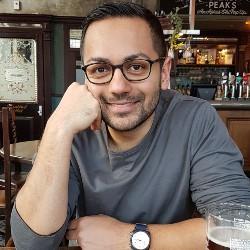My research combines developmental neurobiology, epigenetics, stem cell science and genomics approaches to reveal the role of chromatin remodelling in paediatric high-grade glioma initiation, maintenance and therapy resistance.
Specific techniques we employ include:
- De novo glioma model development using in utero electroporation of transposons and CRISPR vectors
- Transgenics
- In vivo imaging (bioluminescence)
- Tissue histology and immunofluorescence (cryostat/vibratome sectioning, confocal and epifluorescence microscopy)
- Single-cell dissociation of fixed and unfixed tissue
- Neural stem cell work (stem cell culture, stereotactic injection, quiescence/proliferation/differentiation analysis following transfection in vitro and in vivo)
- Flow cytometry (FACS)
- Genomics (RNA-seq/ChIP-seq)
- Molecular biology (cloning, transposon and viral vector design)
- Biochemistry (Western blotting, chromatin immunoprecipitation, acid extraction of histones)

